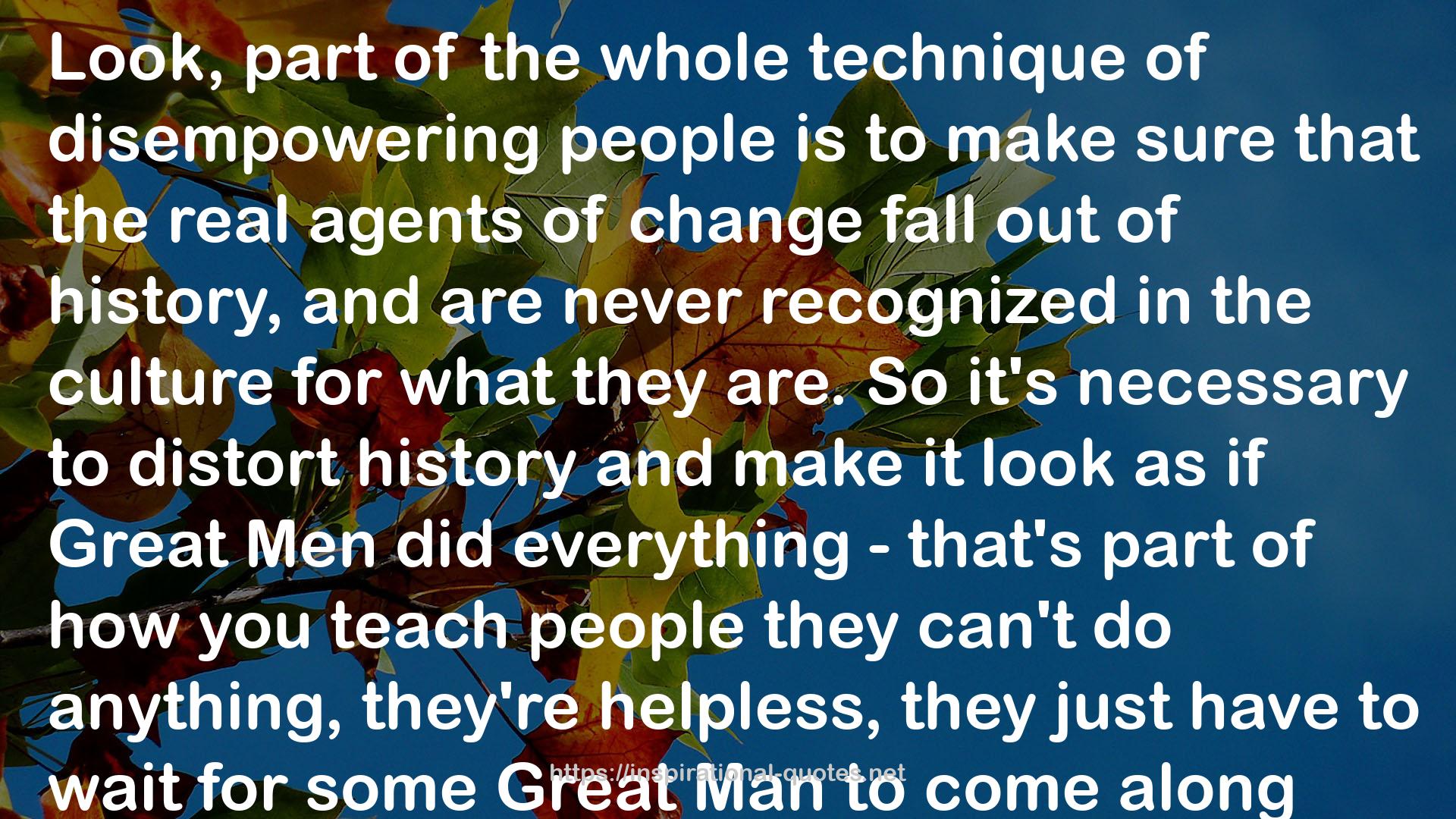Understanding Power: The Indispensable Chomsky QUOTES
20 " ...the qualifications that I have to speak on world affairs are exactly the same ones Henry Kissinger has, and Walt Rostow has, or anybody in the Political Science Department, professional historians—none, none that you don't have. The only difference is, I don't pretend to have qualifications, nor do I pretend that qualifications are needed. I mean, if somebody were to ask me to give a talk on quantum physics, I'd refuse—because I don't understand enough. But world affairs are trivial: there's nothing in the social sciences or history or whatever that is beyond the intellectual capacities of an ordinary fifteen-year-old. You have to do a little work, you have to do some reading, you have to be able to think but there's nothing deep—if there are any theories around that require some special kind of training to understand, then they've been kept a carefully guarded secret. "
- Embers of Aloessia (The Sommerland Chronicles # 0)
- The Sapphire Eruption: A gripping action driven fantasy adventure book for teens and adults (The Sword's Choice 1)
- Ripples in the Milkyway
- Secret Terror In Wavelengths - Wave Links
- Il Viaggio. Volume I (Memorie di Nael #1)
- Aftermath (Star Wars: Aftermath, #1)
- The Rise of Darth Vader (Star Wars: The Dark Lord Trilogy, #3)
- Star Wars: Darth Vader - Dark Lord of the Sith, Vol. 1: Imperial Machine
- Star Wars: Darth Vader - Dark Lord of the Sith, Vol. 2: Legacy's End
- Legacy of the Force: Betrayal (Star Wars: Legacy of the Force, #1)

